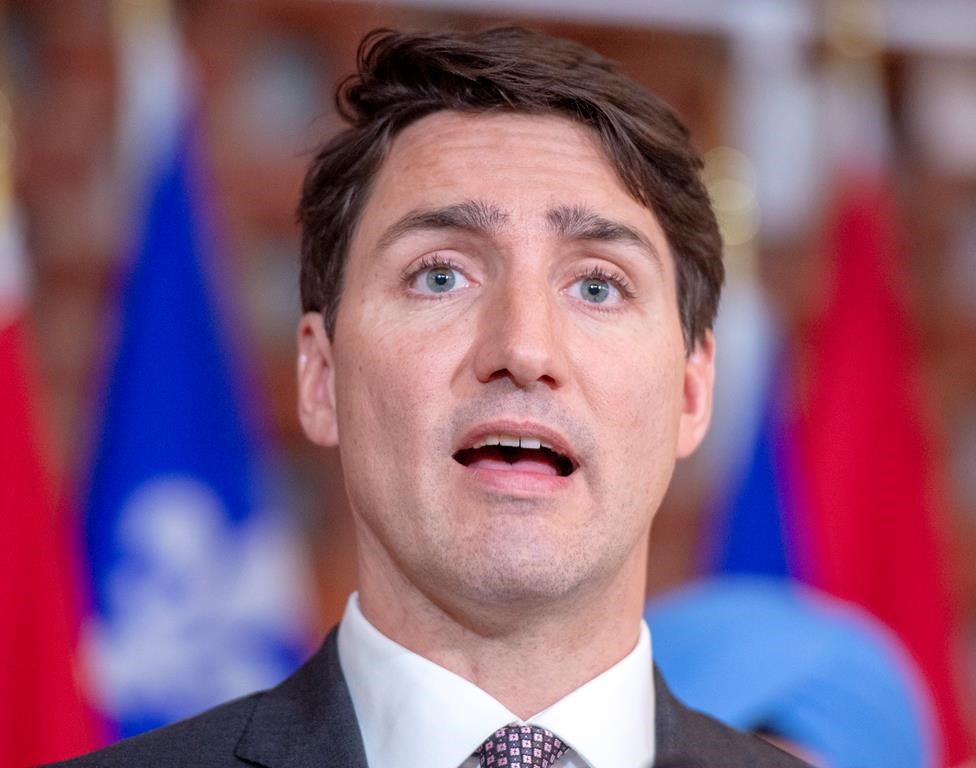Friday is not a day Justin Trudeau was looking forward to.

As the prime minister made his way to Friday’s first ministers meeting in Montreal, the original agenda was puerile.
At a time when Canada’s energy sector is in crisis — with billions of dollars willfully withheld from the national economy and international investors who manage trillions of dollars of assets writing to the prime minister, strongly urging him to engage an improved national energy strategy — Trudeau’s response is to spout 2015 campaign chatter about helping the middle class.
The middle class was not hurting in 2015, but it may soon be — a cruel reminder that agenda-driven initiatives disconnected from reality are not likely to result in victory laps.
Yes, unemployment numbers are down significantly this month, but so is year-over-year hourly wage growth for permanent employees. At 1.46 per cent, it’s the lowest since July 2017.
WATCH: Some premiers want more attention brought to certain issues at first ministers meeting

As Jack Mintz, president’s fellow at the University of Calgary’s School of Public Policy, warned on air recently, when the province of Alberta is in great economic difficulty, the rest of Canada should take very close notice. Alberta has delivered some $220 billion in transfer payments to its more economically wanting provincial partners over the past decade.
And please don’t go fishing for red herrings by pointing out that Ottawa funds transfer payments since Alberta delivers billions of dollars to Ottawa in taxes and the federal government in turn distributes these monies as transfer payments provincially. Make this argument and it somehow sounds conniving.
Montreal’s first ministers meeting didn’t include energy issues or the oil price crisis on its agenda until certain provincial leaders demanded its inclusion. That alone beggars belief.
WATCH: PM to face hostile reception at first ministers meeting

Carbon taxation was also absent. Trudeau’s pan-Canadian demand, with a firewall of provinces in opposition, will see the federal government forced to make its case in court while New Brunswick, Ontario, Manitoba and Saskatchewan rise in opposition. Add Alberta if Jason Kenney’s UCP sweeps to victory in the province in the spring, or perhaps even NDP Premier Rachel Notley if she becomes tired of pulling federal daggers out of her government’s back.
Notley’s assessment of Trudeau’s agenda going into the conference was wrapped up in one word: “fluff.”
Bill C-69, the pipeline-killer legislation, was also not to be addressed at the Montreal meeting.
Ontario’s Premier Doug Ford hinted he might take a pass on the meeting. And why not? Ford is largely the recipient of the provincial version of Trudeau’s federal policies: a horrid Liberal mess on the electricity file, which left the poorest in the province unable — not unwilling — to pay insanely high monthly bills and thousands upon thousands suffering power cuts.
WATCH: Trudeau offers no comment on Ford, say he’s looking forward to first ministers meeting

Many billions in outstanding hydro debt have successive generations of provincial taxpayers chained to meeting an onerous payment plan. Meanwhile, provincial red ink overflows in excess of $300 billion, making Ontario the world’s largest sub-national debtor.
Saskatchewan Premier Scott Moe has said that he will raise any issues he identifies as critical to the province.
I look forward to speaking with Moe on Saturday’s program.
Roy Green is the host of the Roy Green Show on the Global News Radio network.








Comments